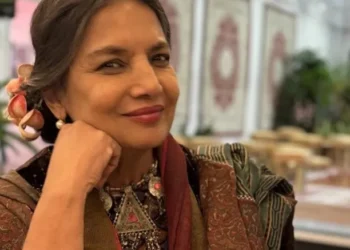India has called for international solidarity to hold responsible under international law the countries that use cross-border terrorism.
India’s Permanent Representative Ruchira Kamboj told the UN Security Council on Thursday, “States that use cross-border terror to serve narrow political purposes must be held accountable”.
“This is only feasible when all countries stand together against common threats such as terrorism and do not engage in double standards for political expediency,” she said.
“The application of rule of law at the international level should protect the sovereignty and territorial integrity of States from aggression, including terrorism, and including cross-border terrorism,” she said.
The remarks were directed at Pakistan, but without mentioning it by name.
The meeting on the role of rule of law in international peace was convened as the signature event of its presidency by Japan that succeeded India as the chair of the Security Council.
Japan’s Foreign Minister Yoshimasa Hayashi said that the “rule of law is the foundational edifice of modern nation States” and “it should be anchored in trust among nations”.
“If agreements are not observed in good faith, then the rule of law does not exist and the world becomes a jungle of brute force and coercion,” he said.
Calling “for further actions to end the aggression against Ukraine” by Russia, he said, “The rule of law never allows any country to rewrite borders by force or through the flexing of muscles”.
Secretary-General Antonio Guterres warned, “We are at grave risk of the rule of lawlessness”.
“In every region of the world, civilians suffer the effects of devastating conflicts, loss of human life, rising poverty and hunger,” he said.
“From the illegal development of nuclear weapons to the illegal use of force, States continue to flout international law with impunity,” he added.
He zeroed in on Russia’s invasion of Ukraine, which he said, “has created a humanitarian and human rights catastrophe, traumatised a generation of children, and accelerated the global food and energy crises.”
Kamboj did not directly refer to the Ukraine situation, but said, “Rule of law necessitates that countries respect each other’s sovereignty and territorial integrity, as they would expect their own sovereignty to be respected.”
Echoing the calls for the reform of the Security Council, she said, “Strengthening the rule of law would also necessitate reforming international institutions of global governance, including those charged with the responsibility of maintenance of international peace and security.”
“Debates on strengthening rule of law while holding on to anachronistic structures that lack representative legitimacy would serve little purpose in our endeavour to strengthen the rule of law,” she added.





















